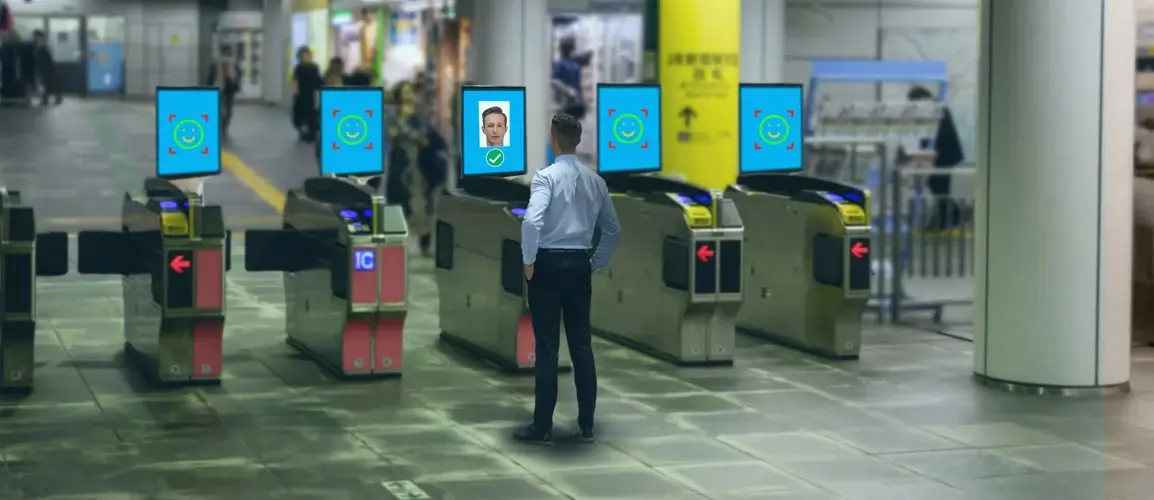Airline passenger figures have hit an all-time high, surpassing 4.5 billion people. An increase in low-cost airlines, the growth of the middle class and a boost in airport infrastructure spending have contributed to this phenomenal growth. But as the number of passengers continues to grow, airports are poised to become busier, queues longer and the customer experience more stressful. So how can technology transform the airport experience?
Our airport customers understand that their passengers view the airport as a stressful environment with queues at every stage from check-in and security to boarding. Airports around the world are investigating how they can use technologies like Artificial Intelligence (AI), automation and biometrics to re-shape the customer experience. The goal of many airports is to become a relaxing and perhaps even inspiring point on their passengers' destination.
Private networks with reliable and consistent speeds that reach every corner of the airport are laying the path for airports to roll out technologies that will re-shape the passenger journey. We're already seeing innovation at some of the world's largest and busiest airports where technologies like biometrics are being used to streamline the security and check-in processes.
Biometrics will streamline check-in and security
In the airport of the future, biometrics could play a key role in managing the departures and arrivals process. Biometrics such as facial recognition, fingerprints, palm prints and iris recognition could be scanned during check-in, linked to passengers' passports to verify their identify and then shared with personnel at security and immigration as well as airline crew at boarding. Then, rather than manually checking passports, a quick scan would re-affirm a passenger's identity, speeding up what can be a time-heavy process. At Atlanta Airport in the US, Delta Airlines has introduced a facial recognition scanning system that will bring passengers all the way from "curb to gate". This implementation is being hailed as a blueprint for what we can expect to see in other global airports.
Removing airport bottlenecks with automation
The ultimate goal at the airport of the future is to remove the bottlenecks that build up throughout the airport starting at the check-in desk. While most airlines offer online check-in facilities, this isn't always a practical option for people who may not have access to a computer or the internet at their location. Instead, airports will feature check-in kiosks where passengers can check in themselves, get biometrically scanned and receive their boarding pass and any notifications relating to their flight direct to their smartphones.
Artificial Intelligence will take charge at the boarding gate
Within the airport all paths eventually lead to the boarding gate, where passengers are ushered into a long queue well in advance of their flight's departure time. Through the use of AI this final queue could be a thing of the past. A combination of cameras, sensors and intelligent data analytics could lead to a queue-less experience as technology identifies who's at the gate, are they travelling with an infant, do they have bags with them, are they physically in need of help to board, and who has yet to arrive at the gate. Armed with all of this information, the AI technology could devise a system for boarding everyone in the most efficient way. By linking up with smartphone notifications, the system could tell passengers when to make their way to the gate, eliminating the queuing and the rushing, and giving passengers more time to relax, finish their food or shopping.
And as we see more automation and AI being introduced into the arrival and departure processes, passengers in tomorrow's airport won't be surprised to see robots or virtual assistants on hand to guide them to their gates, answer their queries or help them to reach connecting flights. KLM has already introduced a virtual assistant called Spencer at Amsterdam's Schipol Airport.
The retail sector's influence on the airport of the future
For today's airports, it's not all about getting passengers from A to B. They have evolved over the years to become shopping experiences where passengers can pick up last-minute purchases or souvenirs of their destination and take advantage of duty-free shopping. The retail sector is pioneering in its use of technology, and we're likely to see that pioneering spirit reflected in the airport of the future. Touchscreen technology will be dotted throughout the terminals where passengers can browse, shop and get their product delivered to their home simply with a few swipes and double clicks.
As passenger figures continue to grow, airports need to embrace technology to deal with the increased capacity by streamlining all processes while also meeting the demands of passengers who want a stress-free customer experience.


